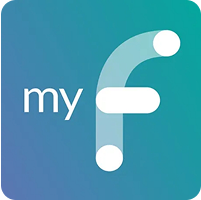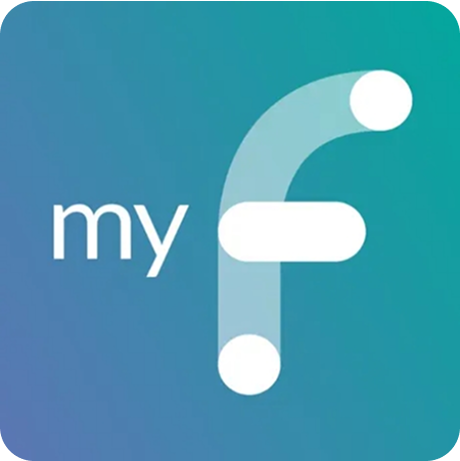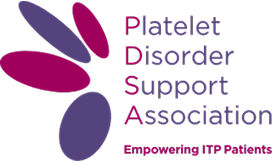
You are about to leave DOPTELET.com/itp and go to an external page.
Please note that Sobi, Inc. is not responsible for the content of the website you are
about to visit.
Go back


You are about to leave DOPTELET.com/itp and go to an external page.
Please note that Sobi, Inc. is not responsible for the content of the website you are
about to visit.
Go back
Discover the Doptelet Copay
Assistance Program
Terms and Conditions

Sobi is providing this free tool to help you find healthcare providers in your area who may have experience treating chronic ITP. Neither Sobi nor MediFind pay healthcare providers to be listed in this tool and healthcare providers do not pay to be listed in the tool. Just because a healthcare provider is listed in the tool does not mean Sobi endorses their qualifications or recommends their medical care. The search results of healthcare providers are sorted by the distance from the location entered. Choosing a healthcare provider is an important decision requiring careful consideration. Sobi is not responsible for your choice or actions you take because of information provided by the tool.
Use the resources below to learn more about Doptelet and Doptelet Sprinkle and find support for your child’s journey with persistent or chronic ITP.

Read more about what your child and family can experience when taking treatment for persistent or chronic ITP.
Download BrochureSee the options available to you, review the eligibility criteria, and enroll today.
Learn MoreWorking with the doctor can help raise your chances of finding a treatment that fits your child’s needs and goals. Here are a few questions to consider before starting a conversation with your child’s doctor:
Trying to raise your child’s low platelet count can raise some questions. The good news is that Doptelet Advisors can help get you the answers you need and point you toward resources. Give them a call at 855-4-LIFTUP (1-855-454-3887).

my florio ITPTM is an all-in-one app designed to monitor all things ITP—platelet counts, bruising events, appointments, treatments, and more—plus, it’s free!
Get started with my florio ITPTM by downloading the app through the Apple Store or Google Play.

If you’re looking to meet others with children living with platelet conditions like persistent or chronic immune thrombocytopenia, these organizations are good places to start. They exist to create a community of support and information for people living with ITP.


A non-profit organization founded in 1998 to enhance the lives of patients and caregivers living with ITP or other platelet disorders through education, advocacy, research, and support.
visit pdsa
An organization that helps to ensure that all women with blood disorders are correctly diagnosed and treated at every stage of life.
visit FWGBD
A non-profit organization for people living with rare diseases. NORD is committed to the identification, treatment, and cure of rare diseases.
visit NORDPeople with ITP don’t normally have a family history of thrombocytopenia (or low platelet counts), but if your child does, you should let your doctor know so a possible genetic link can be considered.
No, ITP is a blood disorder and an autoimmune condition in which your child’s immune system attacks the platelets in their body.
While both hemophilia and ITP are bleeding disorders, ITP is not a form of hemophilia. Hemophilia is an inherited condition, while ITP is an autoimmune disorder. Both conditions are similar in that they affect the body’s ability to clot.
Yes, ITP is an autoimmune condition. When your child has immune thrombocytopenia, their immune system attacks the platelets in their body, leaving your child’s platelet count low.
Typically, ITP is treated by pediatric hematologists, who specialize in treating blood disorders. ITP may also be treated by pediatric oncologists who specialize in hematology. These hematologist oncologists, or “Hem Oncs,” treat children with blood disorders like ITP and people with cancers associated with blood.
In children, ITP is often a newly diagnosed—or acute—condition and can go away on its own. However, ITP can also turn into a persistent or chronic disorder that is lifelong once diagnosed. With a care team and treatment plan, your child’s ITP can be managed to reduce signs and symptoms.
ITP is categorized based on the length of time with the condition. Newly diagnosed—sometimes also called “acute”—is from the time of diagnosis to 3 months, persistent is from 3-12 months, and chronic is having ITP for longer than a year.
Newly diagnosed/acute ITP is found more commonly in children. About 70% of childhood ITP cases resolve on their own, usually within 6 months, but a small percentage can progress to a persistent or chronic condition.
Doptelet and Doptelet Sprinkle are not used to treat acute ITP.
There are a few different types of treatment for ITP that all aim to raise platelet counts to a level that helps lower the risk of bleeding. The most common are corticosteroids, immunosuppressants, thrombopoietin receptor agonists (TPO-RAs), and splenectomies. This is not a complete list of treatments. Talk to your child’s doctor to understand all of your options and see what might work for them.
With Doptelet or Doptelet Sprinkle, your child may experience side effects.
Serious side effects
Doptelet or Doptelet Sprinkle may cause serious side effects including blood clots. People with persistent or chronic ITP and people with certain blood clotting conditions may have an increased risk of developing blood clots. Tell your healthcare provider right away if you get signs and symptoms of a blood clot, including:
Common side effects
The most common side effects of Doptelet or Doptelet Sprinkle in children with persistent or chronic ITP are viral infection, runny nose, cough, fever, and pain in the mouth or throat.
These are not all the possible side effects of Doptelet and Doptelet Sprinkle. Talk to your child’s doctor if any side effect bothers your child or does not go away.
What food your child eats, and when, does not impact the effectiveness of their treatment with Doptelet or Doptelet Sprinkle. Food is required when taking Doptelet in tablet form, and soft food or liquid is required when taking Doptelet Sprinkle.
Recommended soft foods to take with Doptelet Sprinkle: applesauce, strawberry jelly, or yogurt (plain)
Recommended liquids to take with Doptelet Sprinkle: milk (whole or skim), orange juice, pediatric electrolyte solution (unflavored), or water
Remember, your child should take treatment as directed by their doctor. Before starting Doptelet or Doptelet Sprinkle, tell your child’s doctor about all the medicines they take, as their doctor may adjust the starting dose.
Both Doptelet and Doptelet Sprinkle are TPO-RAs. Doptelet tablet is indicated for patients 6 and older and should be taken whole, with any food. Doptelet Sprinkle oral granules are indicated for patients 1 year to less than 6 years and must be mixed into a soft food or liquid.
Recommended soft foods to take with Doptelet Sprinkle: applesauce, strawberry jelly, or yogurt (plain)
Recommended liquids to take with Doptelet Sprinkle: milk (whole or skim), orange juice, pediatric electrolyte solution (unflavored), or water
Doptelet tablets that come in a blister package are not the same dosage form as Doptelet Sprinkle that come in a bottle and cannot be directly substituted for each other.
If your child misses their dose of Doptelet or Doptelet Sprinkle, they should take it as soon as they remember. They should not take 2 doses at once to make up for missing a dose. Your child should take their next dose at their usual time.
If your child takes too much Doptelet or Doptelet Sprinkle, call your healthcare provider or Poison Help Line at 1-800-222-1222, or go to the nearest hospital emergency room right away.
One of the most important steps to getting the care your child deserves is finding the right provider in your area.
Find a specialistSobi is not responsible for the choices or actions that you or others take because of information provided by this free tool.
Indication & Important Safety Information
What are DOPTELET (avatrombopag) and DOPTELET Sprinkle (avatrombopag)?
DOPTELET is a prescription medicine used to treat low blood platelet counts in:
DOPTELET tablets and DOPTELET Sprinkle are different dosage forms of DOPTELET.
DOPTELET and DOPTELET Sprinkle are not used to make platelet counts normal.
It is not known if DOPTELET or DOPTELET Sprinkle are safe and effective in children younger than 1 year of age.
IMPORTANT SAFETY INFORMATION
Before you take DOPTELET or DOPTELET Sprinkle, tell your doctor about all your medical conditions, including if you:
Tell your healthcare provider about all of the medicines you take, including prescription and over-the-counter medicines, vitamins, and herbal supplements. DOPTELET or DOPTELET Sprinkle may affect the way other medicines work, and other medicines may affect the way DOPTELET or DOPTELET Sprinkle works.
What are the side effects of DOPTELET or DOPTELET Sprinkle?
DOPTELET or DOPTELET Sprinkle may cause serious side effects including blood clots. People with CLD or persistent or chronic ITP and people with certain blood clotting conditions may have an increased risk of developing blood clots. Tell your healthcare provider right away if you get signs and symptoms of a blood clot, including:
The most common side effects of DOPTELET in adults with CLD are fever, stomach (abdominal) pain, nausea, headache, tiredness, and swelling of hands and feet.
The most common side effects of DOPTELET in adults with chronic ITP are headache, tiredness, bruising, nosebleed, upper respiratory infection, joint pain, bleeding gums, purple or red spots on your skin, and runny nose.
The most common side effects of DOPTELET or DOPTELET Sprinkle in children with persistent or chronic ITP are viral infection, runny nose, cough, fever, and pain in the mouth or throat.
These are not all of the possible side effects of DOPTELET or DOPTELET Sprinkle. Call your doctor for medical advice about side effects. You may report side effects to FDA at 1-800-FDA-1088.
Please see the DOPTELET and DOPTELET Sprinkle full Prescribing Information.


What are DOPTELET (avatrombopag) and DOPTELET Sprinkle (avatrombopag)?
DOPTELET is a prescription medicine used to treat low blood platelet counts in:
What are DOPTELET (avatrombopag) and DOPTELET Sprinkle (avatrombopag)?
DOPTELET is a prescription medicine used to treat low blood platelet counts in:
DOPTELET tablets and DOPTELET Sprinkle are different dosage forms of DOPTELET.
DOPTELET and DOPTELET Sprinkle are not used to make platelet counts normal.
It is not known if DOPTELET or DOPTELET Sprinkle are safe and effective in children younger than 1 year of age.
IMPORTANT SAFETY INFORMATION
Before you take DOPTELET or DOPTELET Sprinkle, tell your doctor about all your medical conditions, including if you:
Tell your healthcare provider about all of the medicines you take, including prescription and over-the-counter medicines, vitamins, and herbal supplements. DOPTELET or DOPTELET Sprinkle may affect the way other medicines work, and other medicines may affect the way DOPTELET or DOPTELET Sprinkle works.
What are the side effects of DOPTELET or DOPTELET Sprinkle?
DOPTELET or DOPTELET Sprinkle may cause serious side effects including blood clots. People with CLD or persistent or chronic ITP and people with certain blood clotting conditions may have an increased risk of developing blood clots. Tell your healthcare provider right away if you get signs and symptoms of a blood clot, including:
The most common side effects of DOPTELET in adults with CLD are fever, stomach (abdominal) pain, nausea, headache, tiredness, and swelling of hands and feet.
The most common side effects of DOPTELET in adults with chronic ITP are headache, tiredness, bruising, nosebleed, upper respiratory infection, joint pain, bleeding gums, purple or red spots on your skin, and runny nose.
The most common side effects of DOPTELET or DOPTELET Sprinkle in children with persistent or chronic ITP are viral infection, runny nose, cough, fever, and pain in the mouth or throat.
These are not all of the possible side effects of DOPTELET or DOPTELET Sprinkle. Call your doctor for medical advice about side effects. You may report side effects to FDA at 1-800-FDA-1088.
Please see the DOPTELET and DOPTELET Sprinkle full Prescribing Information.

This website uses cookies. By continuing to
use this website, you consent to our use of these cookies. Read more about our use of cookies